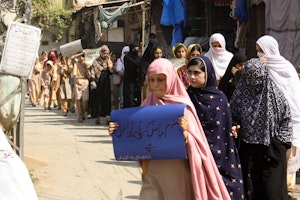Central Asian regimes, especially Uzbekistan, are notoriously known for their hostile treatment of civic freedoms, including freedom of press. Yet, even in most closed societies there are always a few who “pull chestnuts out of the fire,” reporting from the country disregarding the risks of persecution. Fergananews.com (also known as Fergana.Ru) and its small team of journalists are among these reporters. The success of this news website is outstanding: the number of its daily visitors has reached 18,000, with readership spiking at major events.
More than anybody else, Daniil Kislov knows what price they have to pay for this popularity: A number of local correspondents are either in prison, facing persecution or constantly experiencing harassment by the police. At this Open Forum, he will be joined by Muzaffar Suleymanov from the Committee to Protect Journalists, the organization holding the Annual Ceremony to award four most courageous journalists of the year, among them Azimjan Askarov, a prominent prisoner of conscience.
Speakers:
- Danill Kislov, Editor-in-Chief, Fergananews.com
- Muzaffar Suleymanov, Europe and Central Asia Research Associate, Committee to Protect Journalists
- Cornelius Graubner, Senior Program Officer, Central Eurasia Project, Open Society Foundations (moderator)
Read more
Voices
Right to Education for Girls in Pakistan: Malala’s Struggle Must Continue

The recent attack on Malala Yousafzai has shocked Pakistan and the world. More will be needed however if this event is to mark a change in how Pakistan addresses education for girls.
Protecting Civil Society
Persecution at Home and Abroad: Pakistani Human Rights Defenders on the Run

Fazl and Nazish, rights defenders from Pakistan, faced exile for their efforts to encourage public health campaigns and women's education. They were assisted by the Shelter City Initiative, which provides support to rights defenders in danger.
Online Hate Speech
New SEC Complaint Says Meta Misled Shareholders over Myanmar Hate

A whistleblower complaint to the SEC argues that the social media giant Meta misrepresented its role in fueling violence against Myanmar’s Rohingya—highlighting the need for more platform accountability for online hate.